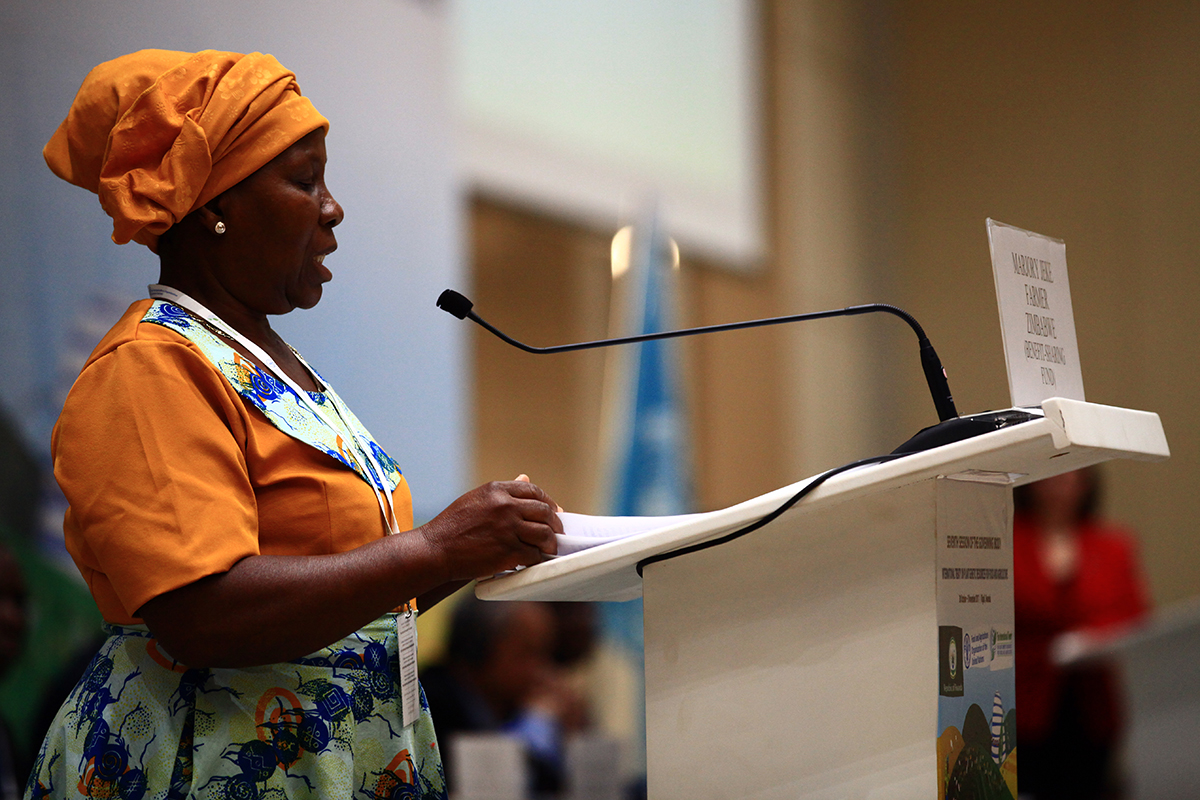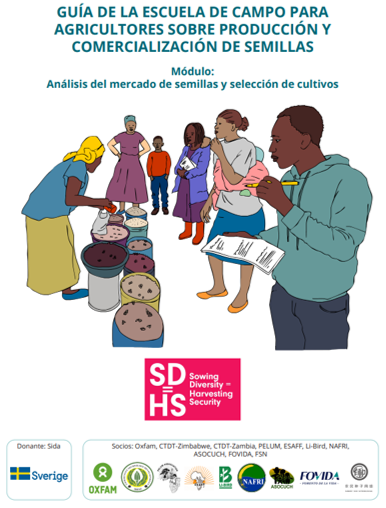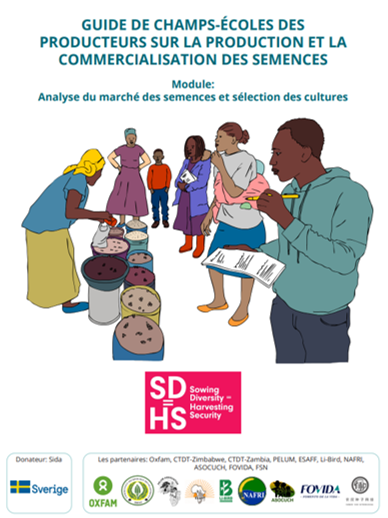Mr Chairman; allow me to thank you for inviting me to represent my fellow farmers in Zimbabwe and deliver a welcome short speech during this Global Workshop. I am informed you are here to develop a proposal to look for funds to expand the Sowing Diversity = Harvesting Security Programme managed by Oxfam Novib.
I feel honoured to be talking to development practitioners of your level.
Mr Chairman, the theme of this Programme “Sowing Diversity = Harvesting Security” is appropriate and relevant particularly now when we as farmers in Zimbabwe are experiencing extreme weather events caused by climate change which is leading to poor yields, hunger and extreme poverty. The above normal 2016 –2017 rainfall season followed by a poor start to the 2017 –2018 one is enough evidence of this.
Mr Chairman, the Sowing Diversity = Harvesting Security” is being implemented in 8 districts of Zimbabwe namely Goromonzi, Chiredzi, Matobo, Mt Darwin, Mudzi, Rushinga, Tsholotsho and Uzumba Maramba Pfungwe. I come from Murehwa which is one of the 3 districts implementing a similar project supported by the FAO Benefit Sharing Fund.
The activities implemented through the Oxfam Novib supported “Sowing Diversity = Harvesting Security are conducted in synergy with a programme called Benefit Sharing Fund (BSF). This cooperation has resulted in increased crop diversity, higher yields and resilience to climate shocks among smallholder farmers like myself. Smallholderfarmers in Zimbabwe have been “caged” to grow hybrid maize even in areas where rainfall amounts received are not enough to see the crop reaching maturity. This has resulted disappearance of farmer varieties including those thatare adaptable to changing climate.
Mr Chairman, I would like to thank the Sowing Diversity = Harvesting Security Programme which has seen the introduction of a wide range of crops including advanced breeding lines, old and new varieties and of bambara nuts, groundnuts, cowpeas, sorghum, finger millets, pigeon peas.
Mr Chairman, the use of Farmer Field Schools have made it easy to implement the project activities. In the Farmer Field Schools we work with agricultural extension officers, breeders from Crop Breeding Institutes, CIMMTY and ICRISAT, lecturers from universities and the gene bank staff. We are involved in Participatory Variety Selection (PVS) participatory Plant Breeding (PPB) and Participatory Variety Enhancement (PVE).
As a result, farmers in project areas are growing a diverse range of crops sourcedfrom theNational Bank of Zimbabwe, ICRISATand CIMMYT. Apart from that farmers in the FFSs are growing and evaluating the performance of advance lines from Crop Breeding Institute, CIMMYT and ICRISAT and selecting breeding lines and crop varieties that are suitable for their environments since project inception. As smallholderfarmers we are aiming to increase the area under other cropssuch as sorghum, groundnuts, cowpeas and millets since these are important for nutrition security.
Farmers from various project district has gained knowledge on what is happening to temperatures and rainfall in our villages. Temperatures are generally warmer now and on average we are receiving less rainfall compared to what was happening 35 years ago when I first came to my village as a young mother. We are informed that this what you call CLIMATE CHANGE. With all the knowledge and crop diversity introduced within our communities, we are confident that we will stay above the climate change curve.
Mr Chairman, I am happy to let you know that in my community we have been promised funding support by CTDO to construct a community seed bank. This will add to the 14 seed banks which have been or are being constructed indifferent communities.
Before I sit down Mr Chairman, may I bring to your attention two issues which your proposal should include in addition to the others that you are already doing:
1. Ideas to increase market linkages and income generation for smallholder farmers like me
2. Bringing youths into agriculture in order to reduce rural to urban migration.
With these few words I welcome you to Zimbabwe and indeed to the communities that you will visit tomorrow.
I thank you.









